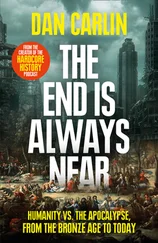It didn’t turn out as Christy planned. Most of the time, when she thinks of Isaac and 401-and, occasionally, when she sleeps there (deals often leading to other deals)-she’s glad about that. The sixteen trees make it feel like someplace else, not Philadelphia. Isaac’s sudden avaricious side-the instant developer eager to make a profit and let nature be damned-didn’t become him. When they both realized they had to stop cold on the second-house idea, Isaac seemed vulnerable again, even sexy, as he had when they first met. Just a writer, and a dreamer, in a house full of books.
Christy broke it to him pretty quickly after he came back from Europe in June. They were sitting in Isaac’s living room, on the old Imperial couch.
“There’s not going to be a second house,” she began. “It can’t happen.”
“What’s wrong?”
“Eric dug down into the yard about forty feet back from the sidewalk.”
“So?”
“So, he hit something. An obstruction.”
“An obstruction?”
Christy got up, walked over to her travel bag, and took out something wrapped in old pages of the Daily News .
It was a matryoshka doll.
“ That’s what Eric hit in the yard?” Isaac asked, his eyes riveted on it.
“That’s not all he hit,” Christy answered, with an efficient air that suggested-this thing is over: game, set, match.
“Try part of a rib cage next to it, not quite separated from its accessories.”
Isaac looked at Christy as if she’d just told him that she’d gotten pregnant by him years ago, given birth, and now it was time for Isaac to meet his daughter. Christy looked at Isaac with an expression that said: You owe me for the rest of your life.
“Don’t worry,” Christy said quickly, “Eric was just as scared and worried and in shock as I was. He’s totally trustworthy on this-he’s fine. He filled up the hole again, and spread the weeds and leaves over it. You’d have to look really close at it, standing right there, to even know it’s been disturbed.”
“I want to show you something,” Isaac said. He got up and went to the attic, where he kept the papers and souvenirs of his three years reporting and teaching in Russia. When he returned, he showed Christy the larger matryoshka doll he’d brought back from Russia-a gift from one of his students there, the daughter of a prominent St. Petersburg businessman.
“Doesn’t the whole doll-inside-a-doll thing stand for the, uh, endless similarity of the human spirit?” asked Christy, repeating something she thought she’d once heard.
“It does,” Isaac replied. “Katya, my student, told me all about them when she gave it to me. Apparently, Russian mafia sometimes bury one of them with a body.”
“What does it mean?”
“According to Katya,” Isaac said, looking impassively at Christy, “it means there are more bodies nearby.”
They peered at each other. Isaac shook his head. He started to say something, but Christy spoke first.
“It never happened. Eric and I never saw anything. So don’t worry.”
Isaac nodded.
“Isaac Lalli,” he said, in a self-mocking tone, “sole master and resident of the 400 block of St. Irenaeus Square.”
Christy gave him a look of solidarity. She came over to the couch, sat beside him, and leaned against him as she hadn’t for years.
“It’s an amazing yard, beautiful just the way it is,” she said.
SEEING NOTHING BY DIANE AYRES
Bella Vista
Idon’t know what shocked me most: the way my foulmouthed neighbor screamed and cursed his hoary mother to the grave-when she already appeared to have gone and returned from it-or the way she screamed back. Especially when she was holding the meat cleaver, standing at the kitchen table whacking the wings and legs off a chicken, always with a cigarette stuck to her lower lip.
I actually heard a mob hit one evening while working in my home office, which I found less disturbing than the sound of that woman-somebody’s grandmother-shrieking the F-word at the top of her two-packs-a-day-for-fifty-year lungs. Hardcore.
The side of our house overlooked the back of their house, where they fought in the kitchen in front of a picture window with blinds they never closed, yellowed by tobacco smoke and splattered grease. When windows were open in this corner of old row homes, voices blasted from below, amplified, between brick and stucco, directly into the window beside my desk as I was trying to work.
My husband and I lived on a side street off a side street, off a side street, which brought to mind a feudal town in Tuscany with passages through a maze too narrow to drive. On a map, our neighborhood, lovely Bella Vista, looks like the border between gentrified Center City and the old-time neighborhoods of South Philly. But at the street level, it felt like a funky residential oasis between noisy, once-hip South Street, where nobody told the kids from Lancaster that Sid Vicious and his haircut were dead, and the inimitable Italian Market, where Rocky Balboa once ran, oozing sweat and punching meat to a really loud and rousing song. And, mostly, Bella Vista life was quiet, except for the Freudian nightmare next door.
I wasn’t one to spy on my neighbors. I only glimpsed them down there, at an extremely sharp diagonal, inadvertently, when I got up to adjust the window, depending on the season and the volume of their noxious spew. When I spotted them, my instinct was to avert my eyes because I found them hideous-like some incarnation of the monster Grendel and his mother, in their lair down below. But I was no Beowulf to slay them, or even to ask them, nicely, to use their indoor voices . I was unnerved by the prospect that they would even spot me up here.
Grendel was a walking case study of vitamin D deprivation, termite-white in a dingy white sleeveless undershirt, sprouting black body hair like a mass of horseflies crawling all over his back and shoulders and up his neck, where they got trapped in his coarse black, greasy hair. He had a matching unibrow, and a Fu Manchu that had taken root in the 1970s and never been weeded. Revolting.
He frightened all of the Bella Vista womenfolk and small children who passed him on the sidewalk as he went to or from his job at our friendly neighborhood corporate chain-store pharmacy, wearing a logo-emblazoned uniform and visor. Though what the visor was for was anybody’s guess. He walked with an elongated stride, as if he were imitating Homo erectus -and badly-swinging his brown bag lunch stiffly, grinning weirdly to no one in particular. There wasn’t a woman who wouldn’t shudder instinctively at his sight, assuming he was a serial killer until proven innocent. Imagine our spine-crawling response when we found out that he was the guy behind the counter who developed our personal family snapshots. For us, the Digital Age couldn’t come too soon.
Grendel’s Mother was almost as strange to behold when she emerged from the back door on shopping day, barely a head taller than the grocery cart she stole from the Superfresh on 11th Street. A sturdy woman, she wore the black widow’s housedress of the Old Country, with her white hair pulled straight back in a bun. The crone drove that rusty piece of junk to and from the market with such road rage that innocent bystanders could only pray she wasn’t packing her meat cleaver. The top-heavy wire basket nearly tipped over at times as she pushed on, having no respect for obstacles she couldn’t see, oblivious to the unpredictable cobblestones, crooked sidewalks, and crumbling curbs, making such an unholy racket I could hear her two blocks away.
It was hard enough trying to concentrate while she was threatening to chop up her son like poultry-I kept thinking, Eeewwww … she’ll have to pluck him.
Читать дальше












